Bulbula [9-yrs]
Bulbola, once living in severe poverty with a mentally ill father in a remote Nuristan village, now thrives in a Kabul safehouse, attending school and enjoying new opportunities beyond her previously constrained life.
The Taliban’s oppressive rule continues to strip Afghan girls of the education and freedom that are their basic rights. Shokofa is deeply dedicated to helping these girls break free from gender apartheid, offering them the chance to pursue education and reclaim their rights to dream, thrive, and live freely in other countries.
Currently, we are supporting 50 Afghan girls living in Pakistan. They reside in homes managed by Shokofa staff and attend international private schools. In addition, they participate in special online English classes taught by Shokofa volunteers. To nurture their unique talents and interests, each girl also takes part in specialized classes, including music, painting, technology, and traditional arts such as embroidery, crochet, and tailoring.
This comprehensive program is designed to empower these girls to flourish, achieve their dreams of high-quality education, and experience the freedom and rights they truly deserve.
You also have the option to sponsor one or more Afghan girls, covering their school fees and living expenses. As a sponsor, you’ll have the chance to connect with the girl(s) you support through letters, video calls, or even in-person visits if possible.
Sponsor Now!
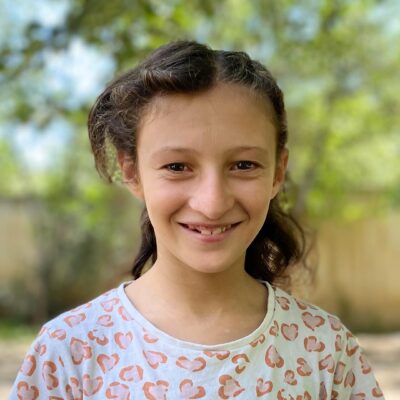
Bulbula [9-yrs]
Bulbola, once living in severe poverty with a mentally ill father in a remote Nuristan village, now thrives in a Kabul safehouse, attending school and enjoying new opportunities beyond her previously constrained life.

Amela [9-yrs]
Orphaned Amela, once living in poverty in a remote Nuristan village, now thrives in a Shokofa safehouse, attending private school and pursuing her dream of becoming a professional artist while learning multiple languages.

Bushra [9-yrs]
Bushra, once a victim of poverty and domestic abuse in a small Nuristan village, now thrives as a hopeful student at a Shokofa safehouse in Kabul, aspiring to become a professional athlete.
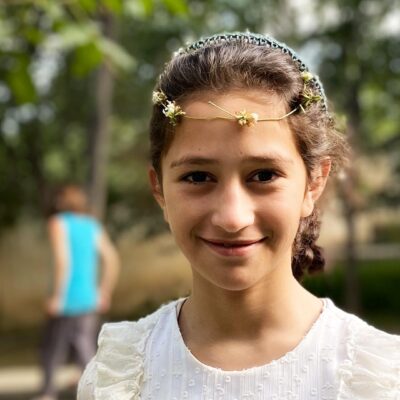
Zomra [9-yrs]
Zomra, the eldest of five, escapes a life of poverty and malnutrition to a hopeful future at Shokofa safehouse, as her young mother's health declines from continuous pregnancies and her father's infrequent presence.
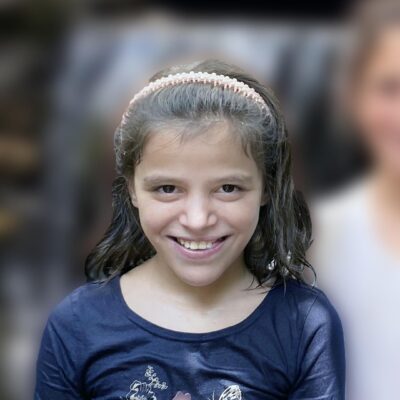
Dania [9-yrs]
Dania, once impoverished, now thrives at Shokofa's safehouse, dreaming of piloting planes and riding horses. Her love for dance brings joy to her new home.
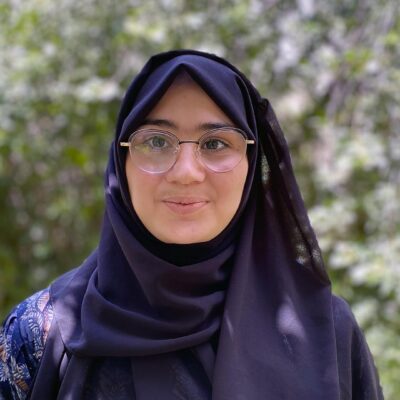
Taiba [15-yrs]
Taiba endured a tumultuous past marked by societal prejudice and discrimination, overshadowing her talents and potential.
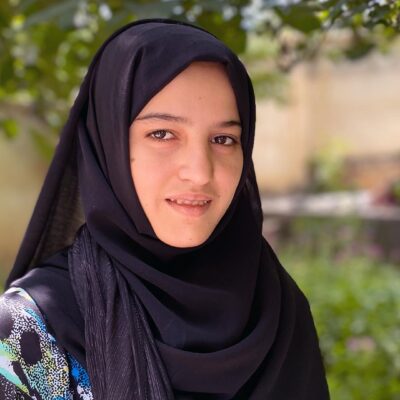
Rizwana [15-yrs]
Rizwana's family faced tragedy as her father, a drug addict, was killed in a war, her mother passed away from illness, and her sisters were married off in exchange for cattle by her misogynistic uncle, influenced by ISIS and the Taliban.
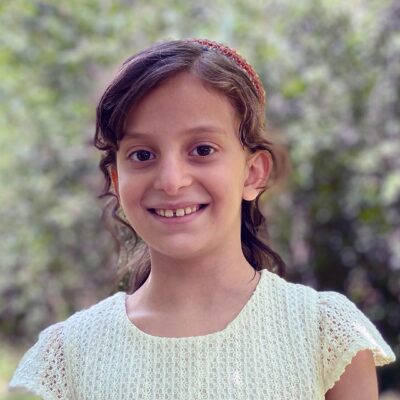
Maryam [8-yrs]
After her father's abandonment and her brother's tragic death, Maryam, once struggling in poverty, now lives in a Shokofa safehouse, attending private school and experiencing a positive shift in her life
If you are unable to sponsor a child, there are other impactful ways to support Shokofa’s mission:
For more information about Shokofa’s educational policy and online educator opportunities, please visit www.shokofa.org/vision or contact the Director of Education, Frozen Danish, at, eDirector@shokofa.org.
Shokofa operates under The Zaanha Fund, a registered U.S. charity with 501(c)(3) tax-exempt status (IRS Tax ID: 452526950).
Here’s how the process works:
Since the Taliban has restricted nonprofit work for girls in Afghanistan, Shokofa cannot open a formal Afghan bank account. Instead, The Zaanha Fund ensures that all money is transferred through secure, lawful alternatives.
Shokofa uses all sponsorship and donation funds to cover essential operational costs:
Shokofa pools all donations, ensuring that every girl in its care receives equal access to resources, regardless of sponsorship status. This is important because not every child has a sponsor. Some children are partially sponsored, while others are not sponsored at all.
Shokofa keeps its administrative costs minimal, with no high-paid executives, unnecessary travel, or luxury expenses. All management positions at Shokofa are voluntary. In this way, the majority of every donation directly benefits the girls, ensuring their education and well-being are prioritized.
Transparency is key to maintaining trust with our sponsors and donors. Shokofa takes the following steps to ensure accountability:
Audits include direct engagement between The Zaanha Fund and our staff on the ground, as well as interactions with the girls to verify that the funds are being used appropriately. Since The Zaanha Fund adheres to IRS guidelines and is accountable to the U.S. government, all transactions are thoroughly reviewed to ensure compliance with U.S. laws.
These measures ensure that every dollar donated to Shokofa is used responsibly and for its intended purpose: to support the girls’ education, safety, and well-being.
Shokofa uses specialized software to match sponsors with children in need. This is how the program works:
Shokofa identifies children through its partnerships with community leaders who recommend girls based on need. These children often come from:
Following the Taliban’s ascension, we strategically adapted our operations to the changing political climate by transitioning from large orphanages to smaller, inconspicuous safehouses. We have initiated home-based classes and remote learning, and discreetly enrolled girls in private schools for grades six and above, maintaining their education without attracting Taliban attention.
To further shield the girls from detection, we house them in small residences or apartments, typically accommodating 8-15 individuals along with a host family. This setup creates the illusion of an ordinary household, significantly reducing the chances of raising suspicions among neighbors or attracting unwanted attention from the Taliban.
Children remain at Shokofa safehouses until they complete high school (12th grade), even if they are older than 18. During their final years, Shokofa helps them prepare for college admission exams.
Some graduates choose to continue their involvement with Shokofa by assisting with organizational efforts and mentoring younger girls. In return, Shokofa supports these graduates with their ongoing educational journeys.
Shokofa’s leadership includes individuals with extensive experience in education and child welfare:
Hosting an Afghan girl is a profound way to make a difference. If you are interested in providing a safe and supportive home, Shokofa offers guidance on the process, including legal documentation, visa requirements, and logistics. Please email us at info@shokofa.org for more details.
If you are unable to sponsor a child, there are other impactful ways to support Shokofa’s mission: